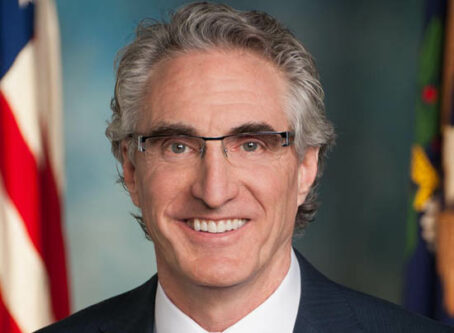Connecticut moves closer to joining regional climate pact
A Connecticut legislative panel has taken the first step to enacting a plan to aid transportation work and limit emissions from road, rail and air sources. Fuel tax increases are expected to result from the adoption of the climate plan.
The Joint Committee on Environment voted 21-11 to advance a bill to formally join a regional climate pact dubbed the Transportation and Climate Initiative Program.
Climate pact background
Late last year, Connecticut Gov. Ned Lamont along with governors in Massachusetts and Rhode Island and the mayor of Washington, D.C., signed a memorandum of understanding stating their intention to bolster transportation funding and reduce emissions.
Each participating state is responsible for approving the final tax plan. The expectation is fuel costs could initially increase anywhere from 5 to 17 cents per gallon.
According to a news release, the Transportation and Climate Initiative Program requires large gasoline and diesel suppliers to buy what are called allowances in a “cap-and-trade” plan. Essentially, companies would be limited to how much carbon dioxide they could emit. After reaching its cap, a company could pay the government a certain amount of money to go beyond that limit. Allowances a company could purchase would decline each year.
The program is expected to cut greenhouse gas emissions from vehicles in that region by 26% from 2022 to 2032.
Over the next decade, the program is estimated to generate about $1 billion. Participating states are expected to use that money to invest in “clean transportation” options and to help stimulate economic recovery from the pandemic.
Committee Co-Chair Christine Cohen, D-Guilford, told the committee that states would be required to use at least 50% of proceeds to ensure communities underserved by the transportation system and overburdened by pollution would benefit equitably from clean transportation projects and programs. States expect about $100 million annually for those efforts.
In order to make up for allowance purchases, fuel prices are expected to rise.
Governor’s office backs bill
Lamont’s administration says the program “represents the most impactful policy opportunity in the nation to reduce greenhouse gas emissions in the transportation sector.”
Paul Mounds, the governor’s chief of staff, told the committee auctions for emission allowances under the cap on carbon emissions would “create revenue for the participating jurisdictions, including Connecticut.”
The climate pact revenue could be spent on projects that reduce transportation-related emissions in communities.
“TCIP is a low-cost, regional solution that will drive investment in our communities while reducing carbon pollution,” Mounds said.
Critics voice concerns over climate pact
Republicans on the committee voting against SB884 say the climate pact program is essentially a fuel tax increase that would burden road users and business owners.
Rep. Stephen Harding Jr., R-Brookfield, said “it truly is a gas tax increase” of at least five cents.
They also voiced concern the revenue raised would be used for other purposes. As a result, road users would again be called upon to foot additional costs.
“We’ve seen funds have been ‘diverted’ even after we have implemented constitutional amendments to protect these funds,” Harding said. “I have serious questions whether or not these funds are truly going to go to the areas which all of us on this committee are working hard to (ensure it goes to where it is) intended to go towards.”
SB884 awaits further consideration in the Connecticut House and Senate before it can advance to the governor’s desk. LL
Land Line Staff Writer Tyson Fisher contributed to this report.









